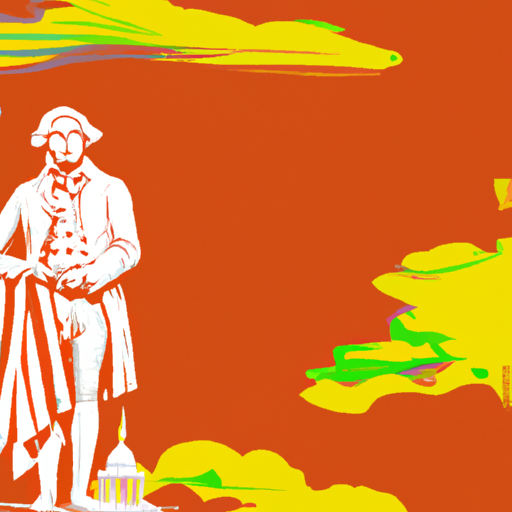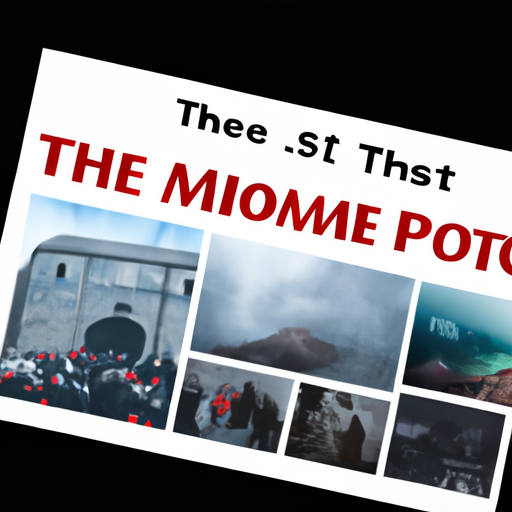A Look at the Historical Main God of China
Delve into the annals of Chinese antiquity and uncover the deity venerated as the supreme being through the ages. Unearth the secrets of times past and investigate who has been held in highest esteem. Uncover who has been extolled as the preeminent divinity throughout history.
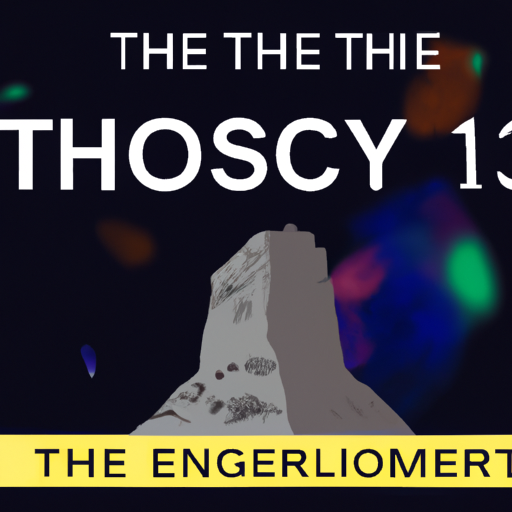
Through the ages, a supreme being has been venerated as the preeminent deity in Chinese history. This divinity has long been held in high regard and praised for its might and authority. To comprehend who this being is and why it is so esteemed, one must explore the chronicles of Chinese antiquity.
The earliest records indicate that this highest power was known as Shangdi or “Lord on High.” This god appears in many ancient documents and was believed to have fashioned all things. As time passed, other deities were added to the pantheon but Shangdi stayed at its zenith. In later periods, Shangdi was supplanted by Tian or Heaven, which was thought to govern over all other gods and humans alike.
No matter what name it went by throughout history, one thing stayed constant: China’s most elevated god has always been greatly admired. That this figure continues to be honored even today speaks volumes about its enduring legacy. By delving into Chinese history, we can gain an appreciation for how this deity has shaped culture and religion over the centuries.
.
Introduction
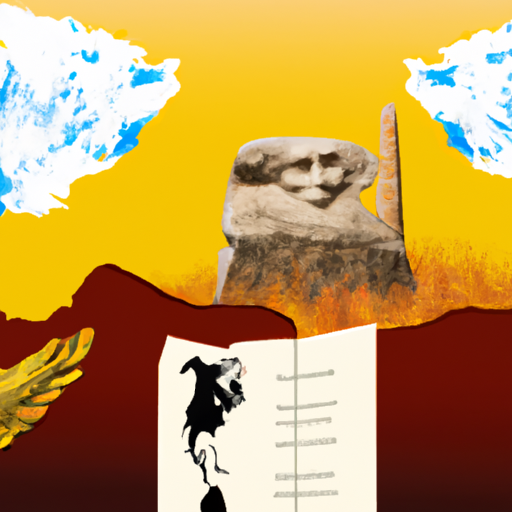
Mystique and awe have surrounded the Chinese deity for centuries. Since antiquity, a pantheon of gods and goddesses have been worshipped, some more than others. In ancient days, Shangdi, or the “Lord on High,” was venerated as the supreme creator and controller of all that is in existence. As time went on, during the Zhou dynasty (1046-256 BCE), reverence for Tian (Heaven) grew significantly and it was seen as a divine influence that regulated human activities. Simultaneously, Confucianism came to be highly regarded and its teachings encouraged veneration of ancestors and obedience to authority. This further increased Tian’s esteem in Chinese culture. In modern times, Buddhism has become an integral part of Chinese religion with many people adoring various Buddhist figures such as Guanyin or Amitabha.
– Historical Origins of the Main God of China
Mystique and awe surround the age-old tale of Shangdi, the supreme being and creator of all things. Shrouded in Chinese culture, this deity is often referred to as ‘the Lord on High’. Ancient texts document Shangdi’s worship by the Xia Dynasty (c. 2100 BCE – c. 1600 BCE), recognizing him as an omnipotent, omniscient ruler who holds absolute authority over the universe. He is said to have formed humans from clay or mud, breathing life into them with his breath and meting out justice through rewards for good deeds and punishment for wrongs.
Over time, various gods were associated with Shangdi such as Fu Xi, Shennong, Huang Di and Yu Di/Yu Huang Shang Ti (Jade Emperor); each dynasty emphasizing different aspects of his character. Although many Chinese people may no longer actively worship him today, he remains a prominent figure in Chinese culture and tradition, revered by Taoism, Confucianism and certain folk religions.
– Evolution of the Main God of China throughout History
Mystifying and perplexing, the saga of the primary deity of China has been a complex one, spanning thousands of years. In ancient days, the Chinese venerated innumerable gods, each with their own individual features. Gradually though, some deities gained prominence and were embraced by Chinese civilization as the main god.
The earliest reference to an all-powerful being reigning over everything is traced back to the Shang dynasty (1600-1046 BC), where Shangdi was believed to be the creator of all things and could bring either fortune or adversity upon those who displeased him. During the Zhou dynasty (1046-256 BC), Tian or Heaven became increasingly significant in Chinese thought, being seen as the controller of all life on Earth and responsible for keeping harmony among people. This notion eventually developed into ancestor worship during the Han dynasty (206 BC-220 AD). Ancestors were viewed as intermediaries between humans and Heaven, mediating between them to ensure justice was served and equilibrium preserved.
The Tang dynasty (618-907 AD) brought Buddhism from India to China; thus, numerous Buddhist gods such as Avalokiteshvara and Ksitigarbha gained recognition in Chinese culture. These gods were perceived as merciful protectors who could aid individuals in achieving spiritual enlightenment through meditation and practice.
Finally, Confucianism grew influential during the Song dynasty (960-1279 AD). Some sects deified Confucius himself while others saw him merely as a wise teacher whose teachings should be followed by everyone. At this time ancestor worship also assumed greater importance; ancestors were not only seen as intermediaries between humans and Heaven but also sources of advice for living an ethical life on Earth.
Throughout its long history, China has had many different gods associated with it; however, some have become more prominent than others over time. From Shangdi to Confucius, these gods have helped shape Chinese culture for centuries, making them an indelible part of its story.
– Cultural Significance of the Main God of China in Chinese History
Mystique and awe has surrounded the main god of China since ancient times. Believed to be the ruler of Heaven, Earth, and all living things, this deity was seen as a source of justice and righteousness in Chinese culture. His importance is further reflected by Confucianism, an ethical system based on the teachings of Confucius which emphasizes respect for authority and tradition. Furthermore, this god was also associated with astrology and divination – people believed he could control fate by influencing celestial events such as eclipses or comets.
The impact of this god can be seen throughout Chinese art and architecture. Paintings often depict scenes involving him or other gods from Chinese mythology, while temples dedicated to him were constructed across China over different periods in its history. These temples served both religious purposes as well as providing a place for people to come together for social gatherings or celebrations related to his influence over their lives.
It is clear that the main god of China has had a profound effect on Chinese culture throughout its long history – one which will remain with generations to come.
– Influence of the Main God on Chinese History and Society
The mysterious power of the main god has been immense in Chinese history and society. Ancient times saw the deep-rooted worship of gods, with the main gods being venerated since antiquity. It is believed that these gods have had a profound effect on Chinese culture, influencing social norms and values throughout its long history.
The five major gods in China are Tian (Heaven), Shangdi (Supreme Ruler), Yu Di (Jade Emperor), Yuhuang Dadi (God of Fortune), and Zhenwu (God of War). Each deity is associated with certain aspects of life such as health, wealth, power, justice, protection, and strength. For instance, Tian is thought to be responsible for creating the universe while Shangdi is seen as a wise ruler who governs the world with justice. Meanwhile Yu Di serves as a protector for mankind and Yuhuang Dadi brings luck and fortune to those who revere him. Finally, Zhenwu is known as a powerful warrior god who defends against evil forces.
These deities have played an important role in Chinese culture over time; during Confucianism’s peak in China people would often turn to them for guidance on how to live their lives according to Confucian teachings. Even today many people still seek advice or inspiration from these gods when making decisions about their lives or careers.
Temples dedicated to these gods continue to draw worshipers seeking blessings or guidance from them while festivals throughout China celebrate these gods as reminders that they remain significant figures in modern day Chinese culture. It is clear that the influence of the main god on Chinese history and society has been far-reaching – profoundly impacting this nation’s culture and beliefs throughout its long history.
– Comparative Analysis between the Main God and Other Gods in Chinese History
Mystifying and awe-inspiring, Chinese mythology is populated with a plethora of gods and goddesses, each with their own unique story and purpose. Of these, the main god or supreme deity is one of the most important figures in Chinese history. This essay will explore the comparison between this figure and other gods in Chinese mythology.
The primary god in Chinese history is Pangu, believed to have brought the world into existence from chaos. He was thought to be an immense cosmic being who hatched from an egg-like structure and divided yin from yang to form the universe. Pangu is often seen as the progenitor of all humans and deities, as well as creator of heaven and earth. He stands for order, harmony, justice, and balance in nature.
In addition to Pangu, there are other gods in Chinese mythology such as Huangdi (the Yellow Emperor), Fuxi (the God of Fire), Nüwa (the Goddess of Creation), among many others. Huangdi was said to be one of ancient China’s earliest rulers while Fuxi was known for his power over fire and teaching humans how to use it for their advantage. Nüwa supposedly created humanity by melting stones into human forms. All these gods had an essential role in shaping ancient China’s culture and beliefs.
When contrasting Pangu with other gods in Chinese mythology, it becomes clear that they all had distinct roles within society. While Pangu was seen as a creator figure who brought about order out of chaos, other gods were more focused on particular aspects like governance or creation. This contrast can be found throughout Chinese mythology – some deities were more dedicated to providing guidance or protection while others were responsible for maintaining order or creating new lifeforms.
To summarize, there are numerous gods in Chinese history but Pangu stands out as the supreme deity among them due to his position as creator figure who established order out of chaos. Other gods such as Huangdi, Fuxi, and Nüwa also played significant roles within society but their functions were much more specific than that of Pangu’s overall influence on ancient China’s culture and beliefs
conclusion
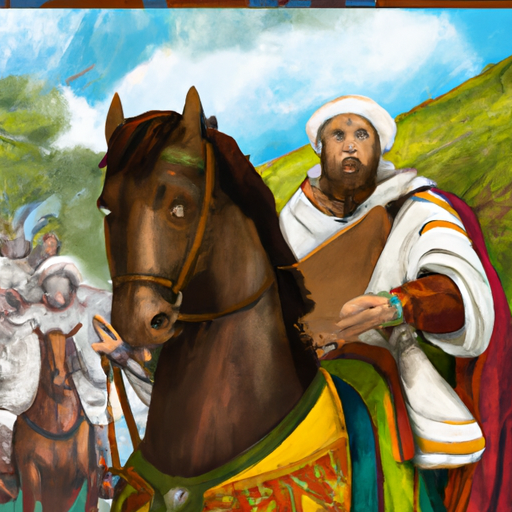
Throughout its long and storied past, China has seen a shifting of the primary divine being. In the earliest days of Chinese faith, the gods worshipped were connected to natural phenomena such as the sun, moon, and stars. Subsequently, Buddhism and Taoism took hold in the nation and these gods were venerated alongside those of ancient China. Nowadays, there is no one single god that reigns supreme; instead, various gods are adored by people across the land.
.
Some questions with answers
Q1: Who is the main god of China?
A1: The main god of ancient China was Shangdi, also known as the “Supreme Deity”.
Q2: How long has Shangdi been worshipped in China?
A2: Shangdi has been a part of Chinese history for thousands of years, with records dating back to at least 1000 BCE.
Q3: What other gods are worshipped in China?
A3: Other gods and goddesses that were worshipped in ancient China include Fuxi, Nuwa, Shennong, and many more.
Q4: What role does Shangdi play in Chinese culture today?
A4: While not as widely worshipped today as it once was, Shangdi remains an important figure in Chinese culture. It is still seen as a symbol of power and authority and is often referred to in literature and art.
Q5: What symbols are associated with Shangdi?
A5: Symbols associated with Shangdi include the dragon, the sun, fire, thunder, lightning, mountains and rivers.
